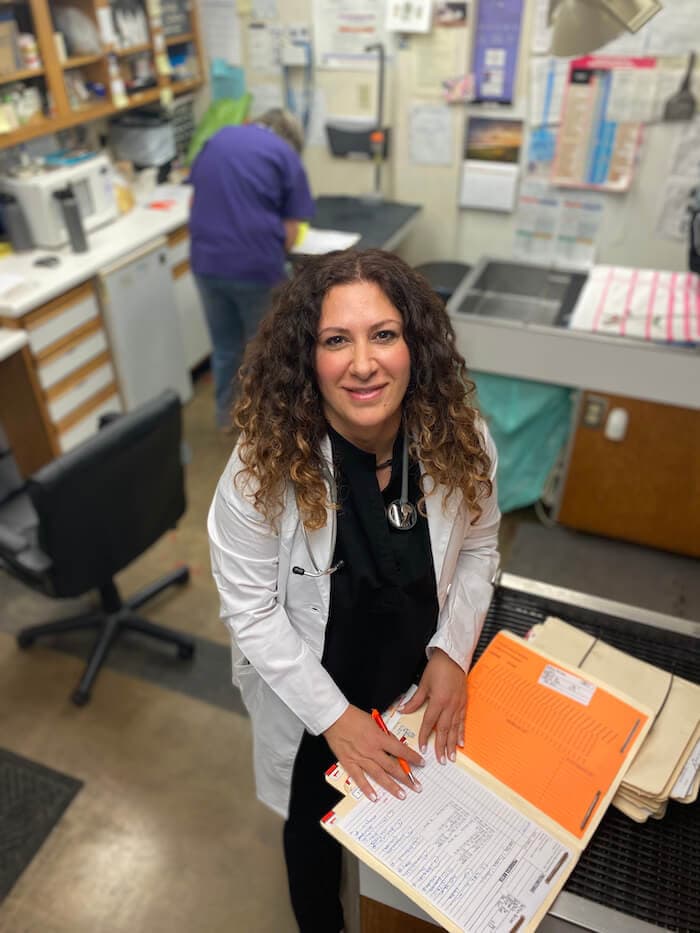Veterinarian's Insights on Deworming Your Dog: Prevention and Treatment of Dog Worms or Parasites
If you’ve turned to the internet because you believe your dog is suffering from intestinal parasites, we highly recommend seeking immediate veterinary care. Hopefully, you're looking into the many preventative alternatives. Either way, though, at GeniusVets, we believe that pet care information should come from veterinarians and not from Dr. Google, especially with such a serious topic. That’s why we’ve taken dog deworming FAQs, sent these questions to renowned veterinarians across the U.S., and compiled their replies to get you helpful information that you can trust.
While we've sourced all of the dog deworming information and recommendations below directly from leading veterinarians across the country, please make sure to seek out the advice of your own veterinarian or find a trusted vet near you using the GeniusVets Directory.
Why is de-worming an important thing to do for my dog?
Deworming is essential because it is a necessary preventative measure. Diseases are much easier to prevent than to deal with, and worms are no exception. We would much rather try to prevent the worms from ever becoming an issue than have to deal with all the GI tract issues they can cause.
Unfortunately, many puppies come to us with parasites, so all puppies should have a very vigorous deworming protocol. Not only are these detrimental to your puppy, but they are also zoonotic, meaning they can be transmitted to your children or your family members.
What are some of the parasites found in dogs, and how are they treated?
Some of the most common parasites found in dogs are roundworms, hookworms, tapeworms, and whipworms. We treat roundworms, hookworms, and whipworms similarly with standard dewormers like Pyrantel or Fenbendazole. There is also a parasite called Coccidia that we treat with a different product. It's not always one that causes as much of an issue so your veterinarian will be able to help determine if that's something that needs to be addressed or not. There is also Giardia, which is a parasite that we treat with a combination of a dewormer and an antibiotic. We must identify what the parasites are with a fecal test, and then we treat them accordingly.
How do intestinal parasites impact the health and wellbeing of my dog?
Intestinal parasites are basically thriving in your pet by stealing the dog's nutrition, most likely causing your pet to experience GI upset—most likely diarrhea and sometimes vomiting. Over time, intestinal parasites can cause malabsorption of nutrition leading to things like anemia or low red blood cells, as well as weight loss and more chronic GI issues. Some dogs have even gotten blockages in their intestines from very extreme parasite loads.
What are some signs and symptoms of intestinal parasites in my dog?
Many parasites have learned how to be in your dog's system without you even knowing about it, and that's being a parasite. But if the load is bad or it's a puppy or an older animal, there will be signs of intestinal parasites.
Signs and symptoms of intestinal parasites in dogs are:
- Diarrhea or loose stools
- Gastrointestinal upset
- Vomiting
- Weakness
- A potbelly if the parasite load is very high
You can see tapeworms in your dog's stool immediately after the stool is passed, as they'll actually inch their way off. You may see many roundworms in the stool, but that's usually after a really high load. What they often pass are microscopic eggs, which is why we do a fecal check on your dog.
Would I be able to see the worms in my dog's stool?
You may see worms in your dog’s stool. For example, with tapeworms, you’d see little bits of what looks like rice versus the full worm itself.
How will a veterinarian diagnose intestinal parasites in my dog?
The best, most straightforward, and inexpensive way to test for parasites in your dog is a diagnostic known as a fecal float or intestinal parasite exam. We take a stool sample—whether you bring it in or we collect it here—and then we put it in a solution and we allow the eggs to float to the top. We put that on a slide and look at it under the microscope. If we see those eggs, then it tells us, "There must be adults producing these eggs present in the GI tract."
With puppies, we generally like to check their stool a couple of times, and that's because they can pass them and then not pass the egg. What we do is we take a fecal sample (we need enough stool) that's like the size of a walnut, and we send it off to a lab, or some veterinarians do it in-house. And we're going to determine what type of parasite is in the stool to treat accordingly.
If you see a worm in your dog's stool, you can always call your veterinarian, and usually, they're able to prescribe a dewormer based on that alone.
Why is the early detection and diagnosis of intestinal parasites in dogs so important?
Remember that parasites are feeding off your dog's body, so that's not healthy for them. Also, parasites can be transmitted to humans, so we want those to be removed as soon as possible. We also want to avoid those more systemic effects, not to mention your dog being uncomfortable after experiencing diarrhea and vomiting. Dogs can get really dehydrated, and anemia is a very serious side effect that may require a blood transfusion to correct. All of these reasons are why prevention of parasites and early detection are so vital to your dog’s health.
What is the difference between natural remedies or over-the-counter dewormers compared to prescription medication?
We’ve all likely seen dewormers in supermarkets, pet stores, et cetera. They may be efficacious, but we worry about resistance. Parasites such as fleas and ticks, or even intestinal parasites can build resistance against certain chemicals and medications. Whereas the ones prescribed by your veterinarian aren't nearly as overused, so those parasites are still susceptible to them.
Also, some OTC meds cause pretty severe diarrhea and cramping quite often while not even killing the parasites. When you get the dewormers at your veterinarian, they come in the appropriate dose, they’re a very safe medication and something that's completely effective.
OTC Dog Deworming Treatments
These veterinarian-recommended options are effective, convenient, and tailored to dogs of various sizes and needs. It is always recommended to speak to your veterinarian before giving your dog any medication or dewormer.
Deworming Products
- Pet Armor 7 Way Dewormer – Broad-spectrum protection against two types of tapeworms, two roundworms, and three hookworms.
- Elanco Dewormer for Small Dogs – Safe and effective deworming option specifically formulated for dogs 6–25 lbs.
- Dewormer for Large Dogs – Tailored for dogs over 25 lbs, providing reliable internal parasite control.
- Safeguard Fenbendazole Dewormer (Liquid) – Liquid form dewormer used for treating multiple gastrointestinal parasites.
- Safeguard 8 in 1 Dewormer – Wide-spectrum dewormer covering common parasites in an easy-to-administer format.
Deworming Comparison Chart
| Product | Form | Coverage | Best For |
|---|---|---|---|
| Pet Armor 7 Way Dewormer | Tablet | Tapeworms, roundworms, hookworms | Dogs needing broad-spectrum protection |
| Elanco Small Dog Dewormer | Tablet | Roundworms, hookworms, tapeworms | Dogs 6–25 lbs |
| Dewormer for Large Dogs | Tablet | Roundworms, hookworms, tapeworms | Dogs over 25 lbs |
| Safeguard Fenbendazole Dewormer | Liquid | Roundworms, hookworms, whipworms, tapeworms | Dogs needing a liquid option or with specific parasite types |
| Safeguard 8 in 1 Dewormer | Tablet | 8 types of internal parasites | Dogs needing extra broad-spectrum parasite control |
Top Picks
For all-around parasite protection, Pet Armor 7 Way Dewormer is a great option that covers the most common intestinal worms.
Need something for a tiny pup? The Elanco Dewormer for Small Dogs is trusted by veterinarians and sized for smaller breeds.
For more advanced coverage, the Safeguard 8-in-1 Dewormer offers a wide range of protection in one treatment.
How do I choose the right dewormer for my dog?
The right dewormer usually depends on what life stage the dog is in. For example, with puppies, we'll do a general deworming and give things Panacur or Drontal. They're liquid formulations that help clear them out at each puppy vaccine appointment. There are parasites we won’t deworm for unless we find them in the stool. For an adult dog that hasn't been on heartworm prevention, we might give something like Drontal—a one-time tablet that clears them out of that current infection.
The AVMA includes deworming as part of their preventive care guidelines—check this list out for other tips on preventive care to keep your dog healthy. If you have further questions about dog deworming, reach out to your veterinarian. If you don't have one yet, we can help you find a local veterinarian!
The Following Veterinarians
Contributed To The Dog Deworming Information On This Page


The Ultimate Guide
to Dog Care
This free guide is an indispensable manual for dog ownership. Filled with veterinary advice and recommendations on every important topic at each stage of your dog’s life, this is all the stuff that responsible dog owners need to know. That is why we are making it free!





